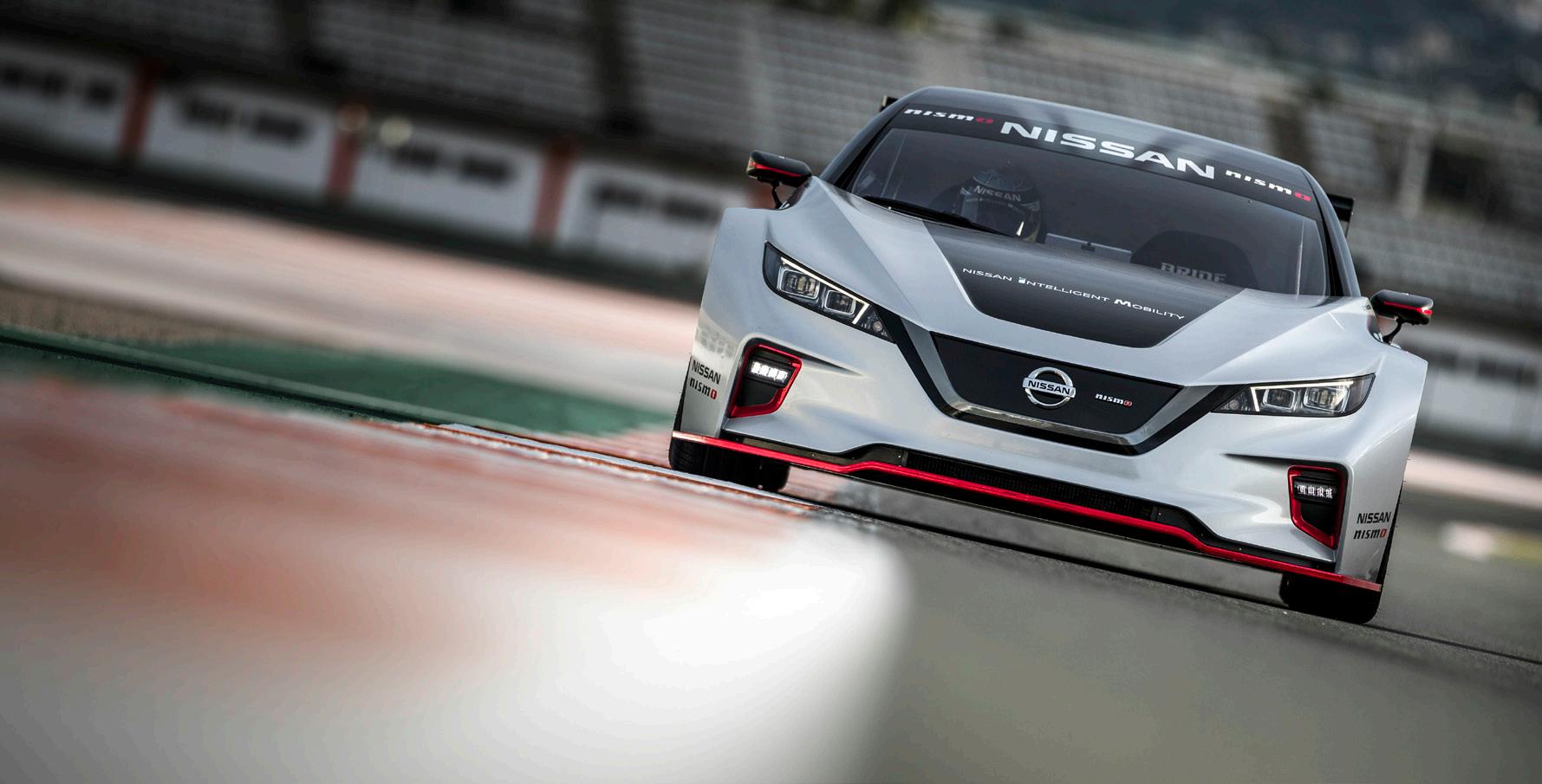
3 minute read
INTERNATIONAL NEWS
Huge rise in EV sales set to continue
This year is expected to be the tipping point for 100% electric vehicles (EV) sales, with the 0% benefit-inkind tax rate due to come into force in April, boosting demand from company car drivers.
Advertisement
That prediction is backed up by sales trends seen in 2019.
According to figures released by the Society of Motor Manufacturers and Traders, registrations of 100% electric vehicles increased by 144% last year compared with 2018, giving them a 1.6% share of the total market, up from 0.6%. The Nissan LEAF sold 5,274 units, giving it 14% of the full-EV market.
The rate of growth accelerated towards the end of the year, with 100% electric vehicles achieving a 3% share of the November market and 3.3% in December. Further proof is provided in the most recent Department for Transport quarterly Vehicle Licensing Statistics 1 , which shows that the number of electric cars more than tripled in Q3 2019 compared with the same period in 2018, increasing by 234%.
According to the report, 22,596 ultra-low emission vehicles (ULEVs) were registered in Great Britain between July and September – an increase of 39% on 2018 Q3 and 56% on 2017 Q3.
The number of diesel cars registered for the first time declined by 16% in Q3 compared with the previous year, to the lowest number since 2001. A Fleet News poll supported the view that demand will increase for electric vehicles this year.
It revealed that more than a quarter of fleets (27%) have already or plan to introduce EVs this year. Fleet News research also showed that the 0% BIK rate would persuade 71% of company car drivers to switch to electric.
Air pollution linked to Alzheimer’s disease
A study published in the Journal of Neurology has found a connection between exposure to air pollution, Alzheimer’s-like brain changes, and worsening memory in older women 3 . Researchers analysed data from 998 women, aged 73 to 87, who had up to two brain scans, five years apart.
Additional information about where the women lived, as well as environmental data from those locations was used to estimate their exposure to fine particulate matter.
The brain scans were then scored in relation to their similarity to Alzheimer’s disease patterns by a machine learning tool that had been ‘trained’ via brain scans of people with Alzheimer’s.
When this information was combined, researchers could then see the association between higher pollution, brain changes and memory problems, even after taking into account differences in geographical location, income, education, race, cigarette smoking and other factors.
1 https://www.gov.uk/government/statistical-data-sets/veh02-licensed-cars 2 https://global.nissannews.com/en/releases/release-d47e2bd8192d14c383483ebde7066762-191216-01-e 3 https://academic.oup.com/brain/advance-article-abstract/doi/10.1093/brain/awz348/5628036
Ultra-fast LEAF NISMO RC debuts at Spanish race circuit

Nissan’s world-leading expertise in electric vehicles and top-class motorsport experience seamlessly come together in the Nissan LEAF NISMO RC, which made its European debut in January at Circuit Ricardo Tormo in Valencia, Spain. Delivering 322hp and 640Nm of instantly available torque, the LEAF NISMO RC offers lightning-quick acceleration, achieving the 0-100km/h sprint in just 3.4 seconds.
Upgrades announced for LEAF in Japan
Nissan has announced it is upgrading driver assistance technologies and connected features in the Nissan LEAF for the Japanese market.
The upgrades were due to be available from February 2020, in time for the 100% electric model’s 10th anniversary. The changes include improvements to the LEAF’s ProPILOT driver assistance technology, the ProPILOT Park feature and the NissanConnect system, as well as the introduction of Nissan’s Intelligent Blind Spot Intervention.
New body colour options are also available. More than 132,000 LEAFs have been sold in Japan since its launch in 2010 2 .

TRL trial highlights need for managed EV charging
The benefits of managed charging – whether by incentivising drivers to charge at set times, or by suppliers controlling charge times – have been shown in a trial conducted by the Transport Research Laboratory (TRL).
More than 200 consumers took part in the eightweek trial using either a battery electric vehicle (BEV), or a plug-in hybrid electric vehicle (PHEV). The research, undertaken as part of the Consumers, Vehicles and Energy Integration (CVEI) project funded by the Energy Technologies Institute, identified that managed charging (or smart charging) is highly effective at shifting EV charging demand away from peak times and is very popular among mainstream consumers.
Without intervention, the increased uptake of EVs could add significantly to existing peak electricity demands and could lead to issues in supply-demand balancing and local network capacity. However, managed charging decreased average charging demand during peak times (4-6pm) by about 70% compared with unmanaged charging.










